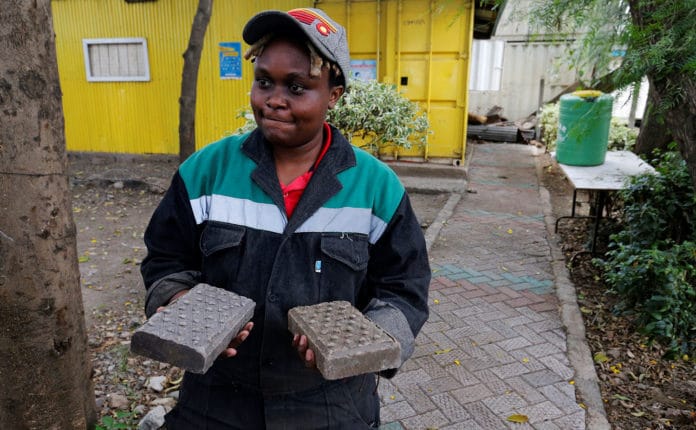Plastic waste, a material that can take centuries or more to disappear, is causing irreparable damage to the planet. At least 8 million tons of plastic end up in the ocean each year. In many cases, specifically in more developed countries, plastic waste is disposed of responsibly and sent to facilities to be sorted, recycled, or recovered. However, plastic waste generated in developing countries typically ends up in dumps or open, uncontrolled landfills – most of which eventually enter the ocean either through transport by wind or tides or through waterways such as rivers or wastewater.
Now, many companies are recycling this waste into useful products, such as sportswear, affordable homes, electric cars, roads, etc. One of them is Gjenge Makers Ltd, a sustainable, alternative, affordable building products manufacturing company that transforms plastic waste into durable building materials. These include paving blocks, paving tiles, and manhole covers.
The startup was founded by a Kenyan woman entrepreneur Nzambi Matee in 2018.
Nzambi Matee has used her engineering skills to develop the process that involved mixing recycled waste plastic and sand. Matee gets the wasted plastic from packaging factories for free, although she pays for the plastic she gets from other recyclers. The company workers take plastic waste, mix it with sand, and heat it up, with the resulting brick being five to seven times stronger than concrete.
Matee’s team uses the type of plastic waste that can’t be processed anymore; that cannot be recycled. Since plastic is fibrous in nature, it makes the brick an extremely strong and durable material. Besides, compared with regular bricks, Gjenge Makers’ ones are lighter, so transportation and installation are achieved at faster rates.
Gjenge Makers produces between 1,000 to 1,500 paving bricks every day in different sizes and colors. The bricks are usually made using high-density polyethylene, used in milk and shampoo bottles; low-density polyethylene, often used for bags for cereals or sandwiches; and polypropylene, used for ropes, flip-top lids, and buckets. However, it does not use polyethylene terephthalate or PET, which are commonly used in plastic bottles.
Matee said her company had already recycled 20 tons of plastic waste since its opening. She plans to add another, the larger product line that could allow the factory to triple its output.
